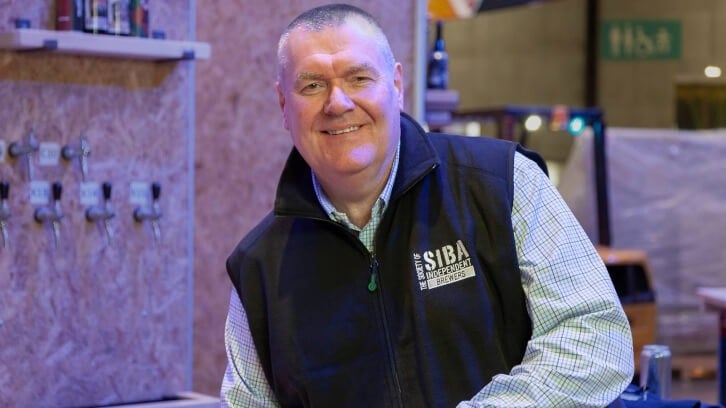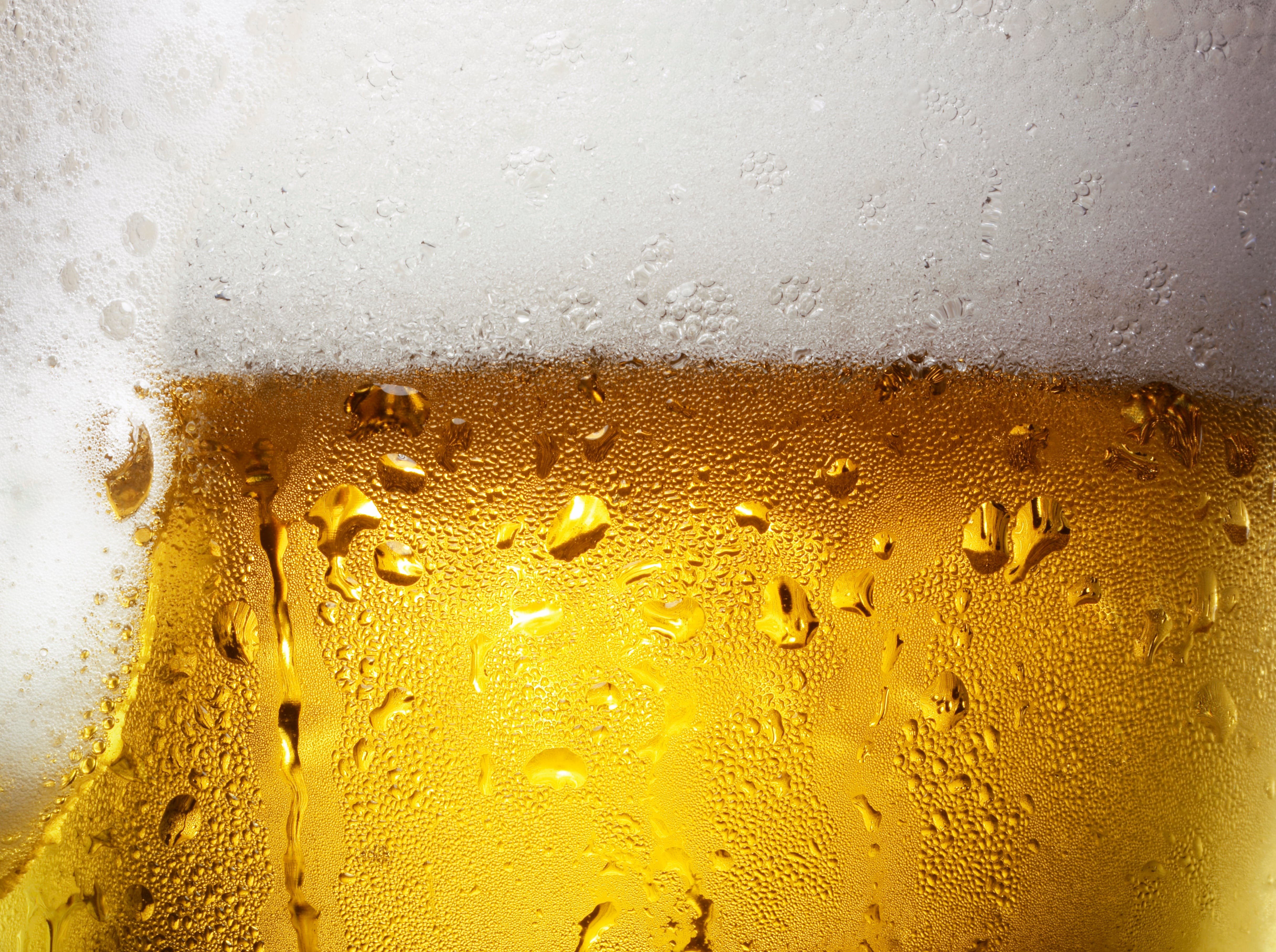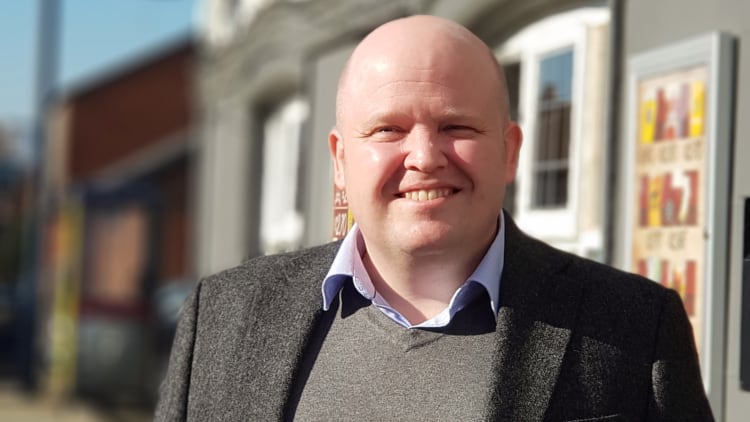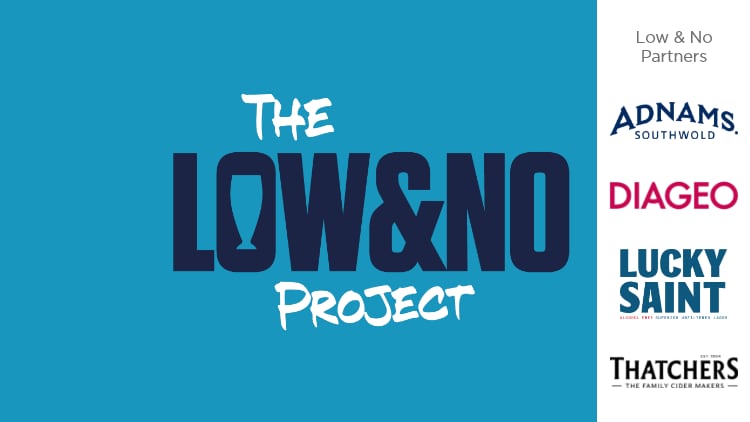One who falls into the gentle giant category, which isn’t to say he hasn’t used his size to advantage at times.
Like when he worked as a repo man relieving people of their credit card when they’d bust their limit. In those days that couldn’t be done digitally so it was Slee who knocked on the door and persuaded them with a handshake.
“I’ll show you,” he says, reaching across the table and clamping his gargantuan fist around my puny knuckles. “That was all it took,” and you can believe him.
You can believe him, too, when he feels pity for those people who fell into debt through no fault of their own. He blames unscrupulous credit card companies, an instinct that comes from deep, from family roots.
Slee’s grandfather was a Liverpool docker late to university. He graduated in politics and philosophy – aged 85.
“If you cut me in half, I support the underdog.”
We have a strong emotional argument in support of independent beer but if we back that up with facts, with numbers, then it can be incredibly powerful
Andy Slee
That was one thing that led him, in 2023, to take the role of CEO at SIBA, the Society of Independent Brewers & Associates, throwing his considerable professional weight behind the little guys.
Slee has come a long way since I first met him some three decades ago, sitting at a regional managing director’s desk at Bass Brewers, which then boasted it was ‘Britain’s Biggest Brewer’.
“I was extremely lucky to have a grounding in Bass,” he says. “They chucked you in at the deep end and before I was 26, I was selling beer to miners’ welfare clubs in Derbyshire that were doing up to 2,000 barrels a year.” (To save you getting your calculators out, that’s 11,500 pints a week.)
Unmissable opportunity
He came up against some tough, no-nonsense, dealmakers, and some great characters. The extent to which he values those days is reflected in his choice of favourite book, Pete Brown’s Clubland, and TV sitcom, Peter Kay’s Phoenix Nights.
Indeed, it’s the people he’s met who have provided the highlights of his career, “the number of true friends I’ve found. There’s no industry like it”.
Leaving Bass to join Coca-Cola Enterprises was, consequently, the most difficult decision he’s ever made. But it was an unmissable opportunity to take charge of Coke’s sales operation across north-west England before going on to look after the on-trade side of the business.
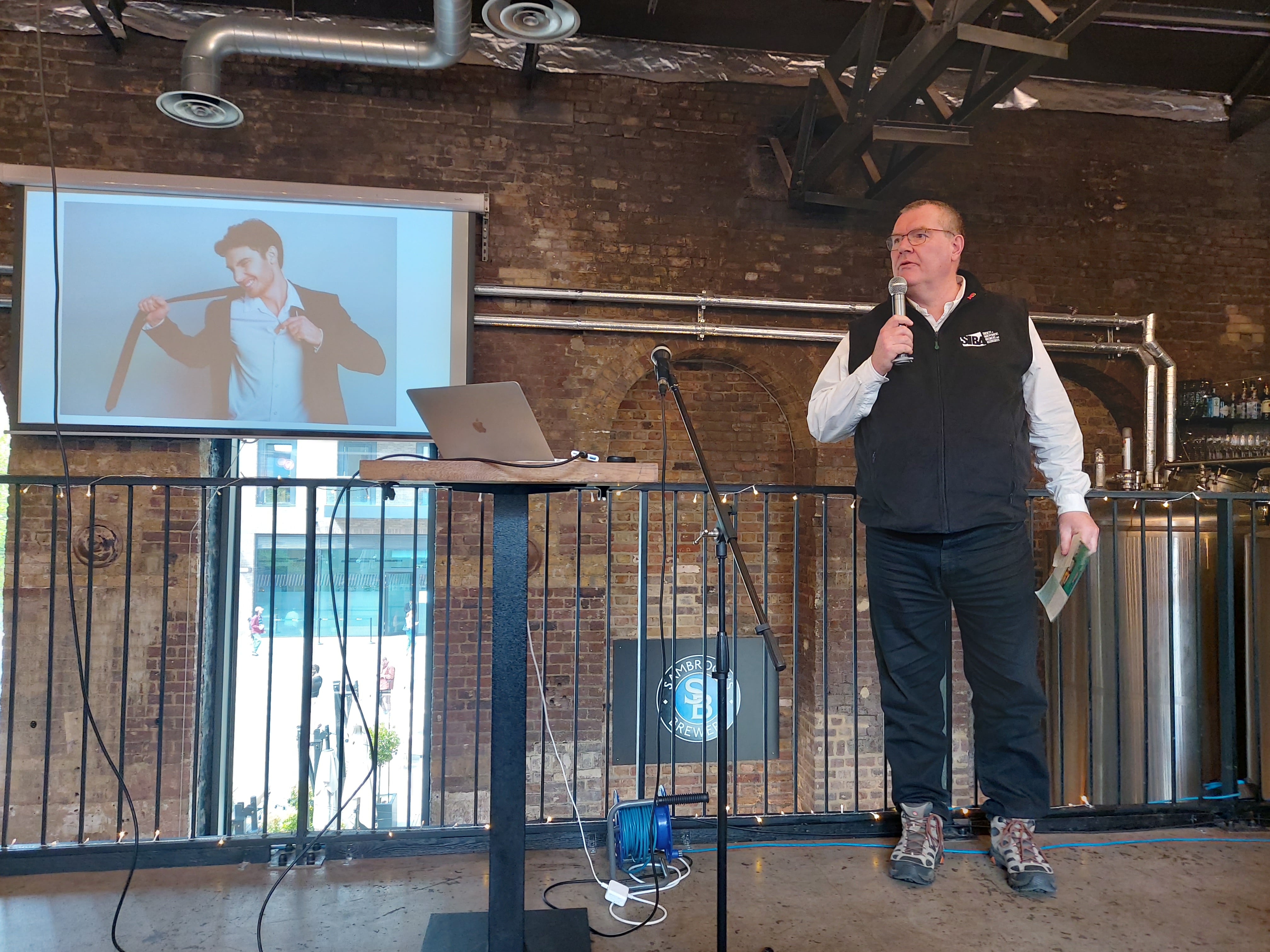
And that experience, over a dozen years, is being put to good use at SIBA, he explains.
“I learned about the science Coke put into understanding consumers, how they used data, the kind of thing you can see in our latest Independent Beer Report. We have a strong emotional argument in support of independent beer but if we back that up with facts, with numbers, then it can be incredibly powerful.
“What also surprised me at Coke was they saw themselves in competition to all other drinks. It was a different way of thinking to brewing, where we just saw ourselves against other beers. You can see that happening in beer now, and in the way pubs have evolved.”
Our members, local brewers, are back to pre-Covid levels of sales, ahead of the market
Andy Slee
To demonstrate that, we’re in a SIBA member’s site, one of Titanic Brewery’s Bods, “a café-bar where coffee is as important as the beer. It means they can reach a wider audience”.
Slee has pub experience too. He joined Punch Taverns in 2010 when the tenanted and leased operator, burdened with debt, was struggling to restore its reputation.
Alongside chief executive Roger Whiteside he helped to repair relations with lessees, facing “irate tenants” on roadshows, setting up the Punch Buying Club to give them better deals and, crucially he believes, “giving them a chance to vent within the company rather than in The Morning Advertiser”.
“We were then more able to address their concerns and Punch’s reputation did improve as a result. Tenants can be brilliant people,” he goes on. “Give them a low-cost entry and you produce great entrepreneurs.”
When the pandemic hit in March 2020, Slee was chair at Black Sheep Brewery. “That was an extraordinary challenge. It proved the resilience of hospitality, its ability to pivot, to adapt, and it showed the importance of being local.
“Pubs maintained contact with their communities and were doing things like looking after elderly people – even though there no money in it.”
Issue united the organisation
The experience “increased people’s willingness to support local. We’ve seen the evidence at SIBA because our members, local brewers, are back to pre-Covid levels of sales, ahead of the market”.
Yet still, he points out, independent brewery beers account for less than 10% of that market while surveys suggest 60% of people would choose a local beer if they could.
Closing that gap is now at the centre of SIBA’s activity and it’s an issue that has united an organisation that at one time argued over such things as small brewery duty relief.
“Brewers are all so different,” says Slee. “Our members include everyone from family firms that have been around for centuries to new start-ups. But they all talk about the same stuff, the same challenges. Part of what I’ve done is to stop the bickering about the 5% they don’t agree on.
“I’m passionate about independent beer. I was part of the group that lobbied for the drop in draught duty on draught. And I saw there was an opportunity for us to pull together. I had to get to grips with the challenges of a membership organisation. But the principles are the same – it all comes back to standing together on the 95% we do agree on.”
We’re accused of being divisive but all we want is for consumers to make an informed choice
Andy Slee
His first step as CEO was to get what he calls “the coalface experience, getting out and speaking to people, understanding their concerns. They spoke about the same things with different accents, whether they brewed cask or keg, whether they were old or new. And that gave us a plan.”
SIBA’s Indie Beer campaign, promoting genuine local independent breweries in the wake of global brewing’s move into craft, is a good example of the plan in practice.
Nine in 10 members have signed up for it. “That’s really high,” says Slee, who is even more impressed by a YouGov poll that shows a third of 18 to 24-year-olds recognise the Indie Beer brand. “That’s really powerful and it shows the launch plan has been effective”.
“We’re accused of being divisive but all we want is for consumers to make an informed choice. Both sides of industry have a role. There’s a desire among people to support local businesses, but there are blurred lines in the market and we’re pointing that out.
“We just want a broader distribution of independent beers. And we believe pubs understand the benefits, the extra business it can bring them, and they want to be able to negotiate a space to list those beers.
“It’s not just about cask. That’s less than 50% of what we do now – which would itself have been unbelievable a decade ago. For instance, there are alternatives to Guinness with a local provenance, along with craft lagers.”
With the independent brewing sector nevertheless suffering a lot of casualties in recent months, a Government review is currently looking into how the beer market operates and assessing whether there is a problem.
Slee is wary of talking about solutions until that process has concluded and the real negotiations begin. But you get a strong sense from him that he’s optimistic about the prospects for improving market access for businesses that know the demand is there for the product.
And when it comes to doing a deal, he still has that handshake.

